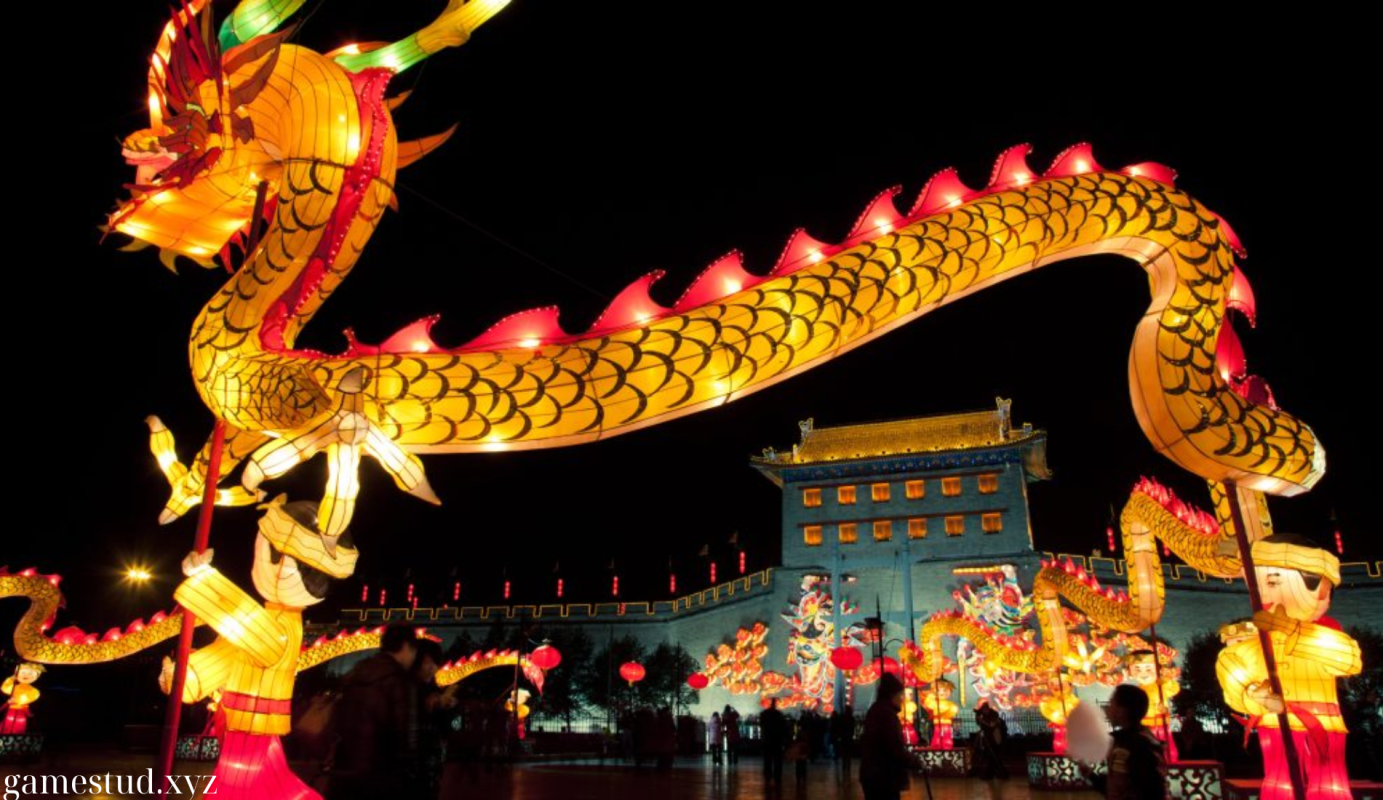Cultural Festivals
Cultural Festival Traditions: Understand the Customs and Rituals of Various Festivals
Cultural festivals offer a vibrant glimpse into the traditions, customs, and values of different communities around the world. These events are not only celebrations of heritage and history but also opportunities to experience unique rituals, cuisines, and artistic expressions. By delving into the customs and rituals associated with various festivals, travelers can gain a deeper appreciation for the cultures they encounter. This guide explores the significance of cultural festival traditions, highlights some of the most notable festivals globally, and offers insights into the customs that make these events truly special.
Table of Contents
ToggleKey Highlights
- Global Festivals Overview: Explore prominent cultural festivals across different continents and their significance.
- Traditional Customs and Rituals: Understand the unique practices and ceremonies that define each festival.
- Festival Foods and Beverages: Discover traditional dishes and drinks associated with these celebrations.
- Artistic Performances and Entertainment: Learn about the music, dance, and artistic expressions featured at these festivals.
- Attending Festivals Responsibly: Get tips on how to participate in cultural festivals respectfully and meaningfully.
Global Festivals Overview: Celebrations Around the World
The Experience: Festivals vary greatly from one culture to another, reflecting the diverse traditions and values of different societies. From religious ceremonies to seasonal celebrations, these festivals offer a rich tapestry of experiences for attendees.
Why It’s a Must-Have: Understanding the context and significance of global festivals allows travelers to engage more deeply with local cultures and traditions.
Top Picks:
- Carnival in Rio de Janeiro, Brazil: Known for its extravagant parades, samba music, and colorful costumes, Rio’s Carnival is one of the largest and most famous festivals in the world. It celebrates Brazilian culture and the spirit of revelry before Lent.
- Diwali in India: The Festival of Lights is celebrated with grandeur across India. Diwali involves lighting lamps, exchanging gifts, and feasting on sweets. It symbolizes the victory of light over darkness and good over evil.
- Oktoberfest in Munich, Germany: This renowned beer festival features traditional Bavarian music, dance, and cuisine. Oktoberfest is a celebration of Bavarian culture and heritage, drawing millions of visitors each year.
- Hanami in Japan: Hanami, or cherry blossom viewing, marks the arrival of spring. People gather under blooming cherry trees to appreciate the fleeting beauty of the blossoms and enjoy picnics with friends and family.
Traditional Customs and Rituals: Unique Practices Across Festivals
The Experience: Each festival is characterized by specific customs and rituals that hold deep cultural significance. These practices often have historical or religious roots and contribute to the overall atmosphere of the festival.
Why It’s a Must-Have: Learning about these customs and rituals enhances your understanding of the festival’s meaning and helps you appreciate the cultural heritage behind the celebration.
Top Customs and Rituals:
- Parade Floats (Carnival): Elaborate floats adorned with intricate designs and themes are a central feature of Carnival parades, showcasing artistic creativity and cultural commentary.
- Fireworks Displays (Diwali): Spectacular fireworks illuminate the night sky during Diwali, symbolizing the joy of the festival and the triumph of light over darkness.
- Beer Toasts and Song (Oktoberfest): Traditional Bavarian songs and enthusiastic toasts with steins of beer are integral to the Oktoberfest experience, celebrating camaraderie and festivity.
- Cherry Blossom Viewing (Hanami): The ritual of picnicking under cherry trees and reflecting on the transient beauty of the blossoms is a cherished Hanami tradition, symbolizing the ephemeral nature of life.
Festival Foods and Beverages: Culinary Delights of Celebrations
The Experience: Food and beverages play a central role in cultural festivals, often reflecting the local cuisine and culinary traditions. These dishes and drinks are enjoyed during the festival and contribute to the overall festive atmosphere.
Why It’s a Must-Have: Sampling traditional festival foods offers a delicious and authentic way to experience local culture and adds to the immersive nature of the celebration.
Top Festival Foods:
- Feijoada (Carnival): A traditional Brazilian stew made with black beans and assorted meats, feijoada is commonly enjoyed during Carnival celebrations.
- Gulab Jamun (Diwali): These sweet, deep-fried dough balls soaked in sugar syrup are a popular treat during Diwali, symbolizing sweetness and celebration.
- Pretzels and Sausages (Oktoberfest): Soft pretzels and hearty sausages are staples of Oktoberfest fare, embodying Bavarian culinary traditions.
- Sakura Mochi (Hanami): Cherry blossom-flavored rice cakes, or sakura mochi, are a seasonal delicacy enjoyed during Hanami festivals in Japan.
Artistic Performances and Entertainment: Expressing Culture Through Art
The Experience: Festivals often feature a range of artistic performances and entertainment that highlight the cultural heritage and artistic traditions of the community. These performances include music, dance, theater, and visual arts.
Why It’s a Must-Have: Engaging with the artistic elements of a festival provides a deeper appreciation for the culture and creativity that define the celebration.
Top Artistic Features:
- Samba Dancers (Carnival): Energetic samba performances with vibrant costumes are a hallmark of Rio’s Carnival, showcasing Brazil’s rich musical and dance heritage.
- Traditional Music and Dance (Diwali): Diwali celebrations often include traditional music and dance performances that reflect the diverse cultural heritage of India.
- Bavarian Folk Music (Oktoberfest): Oktoberfest features traditional Bavarian folk music, including lively polkas and waltzes, enhancing the festive atmosphere.
- Traditional Japanese Drumming (Hanami): Taiko drumming performances during Hanami festivals add a dynamic rhythm to the cherry blossom celebrations.
Attending Festivals Responsibly: Participating with Respect
The Experience: While attending cultural festivals can be an exciting and enriching experience, it’s important to approach these events with respect and sensitivity to local customs and traditions.
Why It’s a Must-Have: Respectful participation ensures that you contribute positively to the festival experience and honor the cultural significance of the event.
Top Tips:
- Educate Yourself: Learn about the festival’s background, customs, and etiquette before attending to ensure you understand and respect local traditions.
- Follow Local Guidelines: Adhere to any guidelines or rules set by festival organizers and local communities, including dress codes and behavior expectations.
- Be Mindful of Cultural Sensitivities: Avoid behaviors that may be considered disrespectful or disruptive. Be considerate of local customs and practices.
- Support Local Vendors: Contribute to the local economy by purchasing goods and food from festival vendors and supporting local artisans and performers.
Conclusion
Cultural festival traditions offer a fascinating insight into the customs, rituals, and values of different communities worldwide. By understanding the significance of these festivals, engaging with their unique customs, and appreciating their culinary and artistic elements, you can enhance your travel experience and gain a deeper respect for global cultures. Attending festivals responsibly ensures that you honor the traditions and contribute positively to the celebration, making your experience both enriching and respectful.
FAQ
What are some popular cultural festivals around the world? Notable festivals include Carnival in Rio de Janeiro, Diwali in India, Oktoberfest in Munich, and Hanami in Japan. Each festival offers unique customs, rituals, and experiences.
How can I learn more about the customs and rituals of a festival? Research the festival’s history and traditions through travel guides, cultural websites, and local resources. Engaging with local residents and festival organizers can also provide valuable insights.
What are some traditional foods and beverages associated with cultural festivals? Festival foods vary by region but may include dishes such as feijoada during Carnival, gulab jamun during Diwali, pretzels and sausages at Oktoberfest, and sakura mochi during Hanami.
How can I participate in a festival respectfully? Educate yourself about the festival’s customs, follow local guidelines, be mindful of cultural sensitivities, and support local vendors to ensure a respectful and positive experience.
Why is it important to understand the cultural significance of a festival? Understanding the cultural significance enhances your appreciation of the festival, allows for respectful participation, and enriches your overall travel experience by connecting you with local traditions and values.

